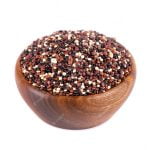
Contents
- 1 Introduction
- 2 1. What is Pulsatile Tinnitus?
- 3 2. Causes of Pulsatile Tinnitus During Pregnancy
- 4 3. Symptoms of Pulsatile Tinnitus
- 5 4. Diagnosing Pulsatile Tinnitus
- 6 5. Treatment Options for Pulsatile Tinnitus
- 7 6. Lifestyle Changes and Self-Help Tips
- 8 7. When to Seek Medical Attention
- 9 8. Managing Pulsatile Tinnitus During Pregnancy
- 10 9. The Impact of Pulsatile Tinnitus on Pregnancy
- 11 10. Coping Strategies for Pulsatile Tinnitus
- 12 11. Research and Future Directions
- 13 12. FAQs (Frequently Asked Questions)
- 14 13. Conclusion
- 15 14. FAQs (Frequently Asked Questions)
Introduction
Pregnancy is a transformative and joyous time for many women. However, it can also bring about various changes in the body, including certain discomforts and health issues. One such condition that some pregnant women may experience is pulsatile tinnitus. In this article, we will explore what pulsatile tinnitus is, its potential causes, symptoms, and available treatment options for expectant mothers.
1. What is Pulsatile Tinnitus?
Pulsatile tinnitus is a specific type of tinnitus characterized by rhythmic or pulsating sounds in the ears that coincide with the heartbeat. Unlike regular tinnitus, which often manifests as a continuous ringing or buzzing sensation, pulsatile tinnitus produces sounds similar to a heartbeat or whooshing noises. It can be a distressing condition for pregnant women, as it may interfere with their daily activities and sleep patterns.
2. Causes of Pulsatile Tinnitus During Pregnancy
During pregnancy, various factors can contribute to the development of pulsatile tinnitus. Some potential causes include:
- Increased blood volume: The body goes through significant changes during pregnancy, including an increase in blood volume. This elevated blood flow can lead to the perception of pulsatile tinnitus.
- Hormonal changes: Fluctuations in hormone levels can affect blood vessels and circulation, potentially causing tinnitus symptoms.
- Anemia: Pregnant women are at an increased risk of developing anemia, which can result in changes in blood flow and the onset of pulsatile tinnitus.
- High blood pressure: Elevated blood pressure during pregnancy can contribute to pulsatile tinnitus.
- Stress and anxiety: Pregnancy can bring about heightened stress and anxiety levels, which may worsen tinnitus symptoms.
3. Symptoms of Pulsatile Tinnitus
The symptoms of pulsatile tinnitus can vary among individuals but often include:
- Hearing a rhythmic or pulsating sound in one or both ears.
- Sensation of hearing your own heartbeat in your ears.
- Hearing a whooshing or swishing sound that coincides with your heartbeat.
- Increased awareness of the tinnitus sounds during quiet environments or when lying down.
4. Diagnosing Pulsatile Tinnitus
If you experience pulsatile tinnitus during pregnancy, it is important to consult with your healthcare provider for a proper diagnosis. They will review your medical history, conduct a physical examination, and may recommend additional tests such as:
- Audiogram: This test evaluates your hearing and helps determine the nature and severity of your tinnitus.
- Imaging tests: Magnetic resonance imaging (MRI) or computed tomography (CT) scans may be performed to identify any underlying vascular or structural abnormalities.
5. Treatment Options for Pulsatile Tinnitus
The treatment of pulsatile tinnitus during pregnancy focuses on managing the underlying causes and alleviating the associated symptoms. Depending on the individual case, treatment options may include:
- Addressing anemia: If anemia is identified as a contributing factor, iron supplementation or dietary adjustments may be recommended.
- Managing blood pressure: Controlling high blood pressure through lifestyle modifications or medication can help reduce tinnitus symptoms.
- Stress reduction techniques: Engaging in relaxation techniques, such as meditation or yoga, can assist in managing stress levels and minimizing tinnitus-related distress.
- Sound therapy: Using white noise machines, fans, or soothing music can provide temporary relief by masking the tinnitus sounds.
6. Lifestyle Changes and Self-Help Tips
In addition to medical interventions, certain lifestyle changes and self-help tips can help pregnant women cope with pulsatile tinnitus. These include:
- Maintaining a healthy diet rich in iron and essential nutrients.
- Staying hydrated to ensure proper blood flow and circulation.
- Getting regular exercise to promote overall well-being and reduce stress.
- Practicing relaxation techniques and stress management strategies.
- Avoiding excessive noise exposure and using ear protection when necessary.
7. When to Seek Medical Attention
While pulsatile tinnitus during pregnancy is often benign, there are instances when medical attention should be sought. Contact your healthcare provider if you experience any of the following:
- Sudden or severe onset of pulsatile tinnitus.
- Accompanying symptoms like dizziness, fainting, or headaches.
- Changes in vision or sensitivity to light.
- Persistent tinnitus that interferes with your daily life.
8. Managing Pulsatile Tinnitus During Pregnancy
Pulsatile tinnitus can be challenging to manage during pregnancy, but several strategies can help alleviate discomfort. These include:
- Creating a calm and quiet environment to minimize stress and anxiety.
- Using relaxation techniques and practicing mindfulness to reduce tinnitus-related distress.
- Seeking support from loved ones or joining support groups for pregnant women with tinnitus.
- Engaging in activities that distract from the tinnitus sounds, such as reading, listening to music, or pursuing hobbies.
9. The Impact of Pulsatile Tinnitus on Pregnancy
While pulsatile tinnitus can be bothersome, it is essential to remember that it rarely poses a direct threat to the pregnancy itself. However, it can cause discomfort and affect the overall well-being of expectant mothers. Seeking appropriate medical care and adopting coping strategies can significantly improve the quality of life during pregnancy.
10. Coping Strategies for Pulsatile Tinnitus
Coping with pulsatile tinnitus during pregnancy involves a combination of medical interventions and self-care strategies. Here are some effective coping strategies:
- Communicate with your healthcare provider openly about your symptoms and concerns.
- Engage in stress-reducing activities such as prenatal yoga or deep breathing exercises.
- Seek support from family, friends, or online communities.
- Focus on positive distractions, such as reading uplifting books or watching feel-good movies.
- Maintain a healthy lifestyle by eating nutritious meals and getting sufficient rest.
11. Research and Future Directions
Ongoing research aims to further understand the causes and treatment options for pulsatile tinnitus during pregnancy. Researchers are investigating potential links between hormonal changes, blood flow, and tinnitus symptoms to develop more targeted interventions. By advancing our knowledge in this area, healthcare professionals can better support pregnant women experiencing pulsatile tinnitus.
12. FAQs (Frequently Asked Questions)
Q1: Can pulsatile tinnitus harm my unborn baby? A1: Pulsatile tinnitus itself does not pose a direct threat to your unborn baby. However, it is essential to manage your symptoms and seek appropriate medical care to ensure your overall well-being during pregnancy.
Q2: Will pulsatile tinnitus go away after pregnancy? A2: In many cases, pulsatile tinnitus resolves on its own after pregnancy. However, if the symptoms persist or worsen, it is advisable to consult with your healthcare provider for further evaluation and guidance.
Q3: Can stress make pulsatile tinnitus worse during pregnancy? A3: Yes, stress and anxiety can exacerbate pulsatile tinnitus symptoms. Engaging in stress reduction techniques, such as relaxation exercises and seeking emotional support, can help manage tinnitus-related distress.
Q4: Is there a link between hormonal changes and pulsatile tinnitus? A4: Hormonal changes during pregnancy can potentially contribute to the development or worsening of pulsatile tinnitus. Research is ongoing to better understand this relationship.
Q5: Can I take any medications to alleviate pulsatile tinnitus during pregnancy? A5: It is essential to consult with your healthcare provider before taking any medications or supplements during pregnancy. They can guide you on the safest options based on your specific situation.
13. Conclusion
Pulsatile tinnitus during pregnancy can be a challenging and distressing condition for expectant mothers. However, with the right medical care, lifestyle adjustments, and coping strategies, it is possible to manage the symptoms effectively. By seeking support, staying informed, and prioritizing self-care, pregnant women can navigate this temporary condition and focus on enjoying their journey to motherhood.
14. FAQs (Frequently Asked Questions)
Q1: Can pulsatile tinnitus harm my unborn baby? A1: Pulsatile tinnitus itself does not pose a direct threat to your unborn baby. However, it is essential to manage your symptoms and seek appropriate medical care to ensure your overall well-being during pregnancy.
Q2: Will pulsatile tinnitus go away after pregnancy? A2: In many cases, pulsatile tinnitus resolves on its own after pregnancy. However, if the symptoms persist or worsen, it is advisable to consult with your healthcare provider for further evaluation and guidance.
Q3: Can stress make pulsatile tinnitus worse during pregnancy? A3: Yes, stress and anxiety can exacerbate pulsatile tinnitus symptoms. Engaging in stress reduction techniques, such as relaxation exercises and seeking emotional support, can help manage tinnitus-related distress.
Q4: Is there a link between hormonal changes and pulsatile tinnitus? A4: Hormonal changes during pregnancy can potentially contribute to the development or worsening of pulsatile tinnitus. Research is ongoing to better understand this relationship.
Q5: Can I take any medications to alleviate pulsatile tinnitus during pregnancy? A5: It is essential to consult with your healthcare provider before taking any medications or supplements during pregnancy. They can guide you on the safest options based on your specific situation.




